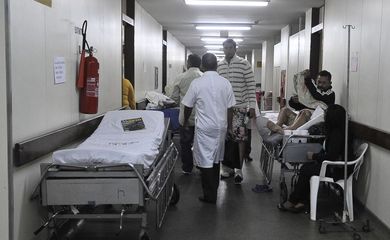Survey seeks volunteers to test penile cancer treatment

The University Hospital of Brasília (HUB) selects volunteers in five states and the Federal District to test a new treatment for penile cancer. Participants must have a diagnosis of the disease at an advanced stage or with metastasis.

The study will link the use of immunotherapy with chemotherapy. The drug under analysis is already used for the treatment of other types of cancer, with application in the vein. The proposal is to improve results, with tumor reduction and increased patient survival.
The protocol against penile cancer that uses only chemotherapy, according to the hospital, has not shown great advances in recent decades. “That is why the urgency to seek a more effective treatment for patients at an advanced stage of the disease”, highlighted the HUB.
In addition to the university hospital, the study is carried out in eight other research centers located in Rio de Janeiro, São Paulo, Belém, Fortaleza, Jaú (SP), Curitiba and Barretos (SP). The goal is to recruit 33 volunteers across the country.
requirements
To be a volunteer, you must meet the following requirements: advanced or metastatic disease, without prior exposure to chemotherapy; or disease progression 12 months after completion of adjuvant or neoadjuvant chemotherapy.
Those who meet these criteria and are interested in participating in the research should get in touch through the email Pesquisaclinica.hub@ebserh.gov.br or by telephone (61) 3255-8920.
penile cancer
According to the HUB, penile cancer is considered a rare tumor, with a higher incidence in men over 50 years of age. The tumor represents 2% of all types of cancer that affect the male population.
The main symptoms include skin changes, swelling and a lump in the groin area. Care with intimate hygiene, phimosis surgery and HPV prevention can help prevent the disease.
“The lack of information about the disease hinders early diagnosis. When diagnosed at an early stage, the chances of cure are high, but many patients take a long time to seek help”, warns the hospital.
Text translated using artificial intelligence.



